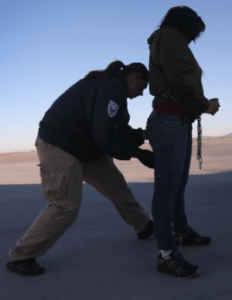 More than one in four California residents (27 percent) are immigrants, and more than 4.6 million Californians share a household with at least one undocumented family member. Thus, changes in immigration enforcement policies have significant public health impacts on Californians. California has recently enacted several laws (AB 450, AB 103 and SB 54) to shield against the aggressive immigration enforcement actions of the U.S. Department of Homeland Security (DHS) and the U.S. Department of Justice. On July 9, a federal court in California dismissed most of the Trump administration’s lawsuit against the State of California seeking to invalidate this package of laws that provide for the health and safety of immigrant communities in the State. A “friend of the court” brief in support of the California Attorney General’s position was submitted by 44 health advocacy and civil rights organizations in California and across the country to highlight the important public health protections of these laws. Despite these important legislative efforts in California, the Trump administration continues to put in place policies and practices that harm immigrant families and pregnant women.
More than one in four California residents (27 percent) are immigrants, and more than 4.6 million Californians share a household with at least one undocumented family member. Thus, changes in immigration enforcement policies have significant public health impacts on Californians. California has recently enacted several laws (AB 450, AB 103 and SB 54) to shield against the aggressive immigration enforcement actions of the U.S. Department of Homeland Security (DHS) and the U.S. Department of Justice. On July 9, a federal court in California dismissed most of the Trump administration’s lawsuit against the State of California seeking to invalidate this package of laws that provide for the health and safety of immigrant communities in the State. A “friend of the court” brief in support of the California Attorney General’s position was submitted by 44 health advocacy and civil rights organizations in California and across the country to highlight the important public health protections of these laws. Despite these important legislative efforts in California, the Trump administration continues to put in place policies and practices that harm immigrant families and pregnant women.
News outlets have reported heart wrenching stories of babies and young children separated from their parents, triggering sharp opposition from numerous health provider organizations. The separations were the result of the Trump administration’s “zero tolerance” immigration policy and resulted in the separation of nearly 3,000 immigrant child from their parents after crossing the border. The policy sparked public outrage, and forced the president to issue an executive order ending the practice. Yet other disturbing policy changes have quietly gone into effect and remain intact today. Late last year, the administration implemented a new policy that has resulted in the mistreatment of pregnant immigrant women in detention, many of whom fled violence in their countries of origin. A recent news reportrevealed the systematic denial of adequate medical care for pregnant detainees and the use of shackles, including around the stomach, during transportation between facilities. Several women also reported that they miscarried in immigration detention, yet were denied medical attention. A joint complaint letter prepared by a group of advocacy organizations and submitted to DHS detailed various instances of mistreatment, denials of requests for medical care, and failures to respond to medical emergencies by Immigration and Customs Enforcement (ICE) and Customs and Border Protection (CBP).
Under the Obama administration, ICE did not detain pregnant women except in “extreme circumstances” or in relatively rare cases of expedited deportation. Under the new policy, which was not announced publicly until March but was implemented in December 2017, ICE may detain pregnant women not yet in their third trimester, resulting in the detention of approximately 500 pregnant women since the change in policy. While the department is responsible for “ensuring pregnant detainees receive appropriate medical care including effectuating transfers to facilities that are able to provide appropriate medical treatment,” media and advocacy reports indicate that ICE has failed to enforce its own standards for providing prenatal care. Furthermore, the change in policy will likely have an adverse impact on maternal and infant health outcomes. There is well documented research about the negative impacts of stress exposure during pregnancy on women and their children. A growing body of research has also shown a link between immigration policy/enforcement and adverse birth outcomes. Stress can affect a developing fetus by shifting hormone balances in ways that trigger premature birth and/or low birth weight, even for babies born at full term. Low birth weight increases a child’s chances of long-term health problems such as heart disease, diabetes, and intellectual and developmental disabilities. It is no surprise that the policy has drawn criticism from the American College of Obstetricians and Gynecologists.
In spite of these harmful federal policies and practices, California advocates and policymakers are leading the charge in enacting greater protections and challenging the unjust policies towards immigrants. On June 26, federal court Judge Dana Sabraw in San Diego orderedthe Trump administration to reverse course and reunite all families separated under its “zero tolerance” immigration policy by July 26. Two weeks later, another federal judge in California formally refused the Trump administration’s request to modify the Flores case settlement, which governs the treatment of children in immigration custody. (The Flores agreement was the court ruling that the administration had wrongly cited as the reason for its policy of family separation.) California Congresswoman Senator Kamala Harris also wrote a letter calling on the Office of Inspector General at DHS to investigate the treatment of pregnant women in immigration detention, and recently co-sponsored a bill to end the detainment and shackling of pregnant immigrant women in detention. More efforts by other states should be taken to continue to advance immigrant protections and advocate for the health and safety of all of its residents.
